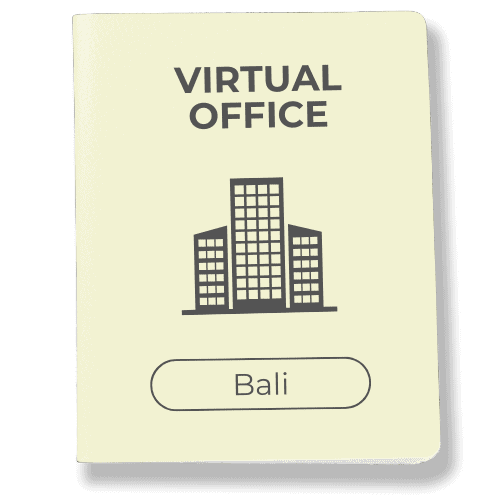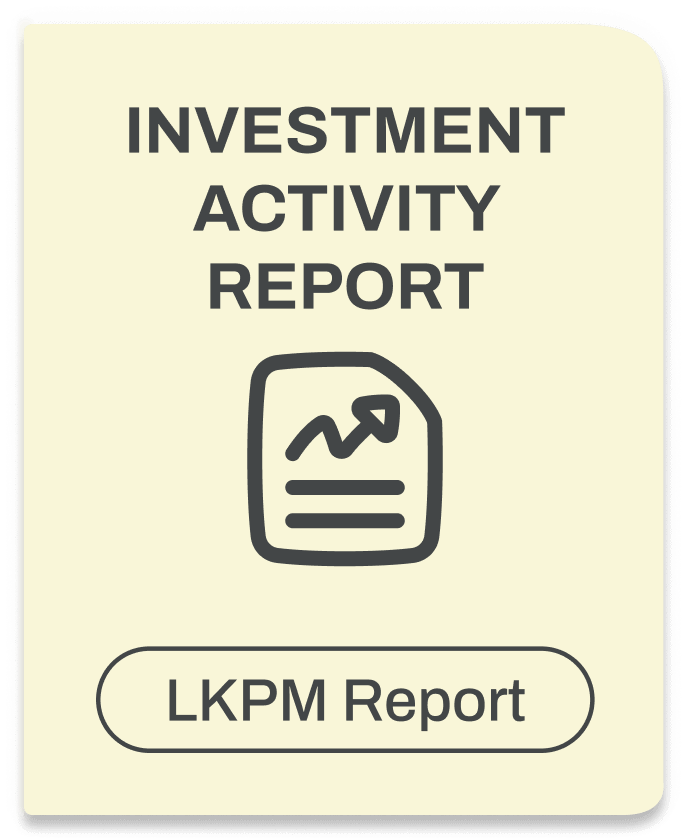Retire in Bali (2025): Visa Options, Best Area, and Healthcare

Bali offers year-round warmth, affordable cost of living, and that tropical lifestyle you’ve been dreaming about. Your retirement dollar stretches much further here than back home. Healthcare is decent for most needs, and locals offer warm hospitality to the thriving expat community.
The reality? While retirement visa paperwork takes some effort and requirements do change, it’s absolutely manageable with the right guidance. You can comfortably retire here and spend anywhere from $800 to $3,000+ monthly, depending on your personal preferences.
The good news is there are now multiple visa options – the standard retirement visa typically requires you to be 60 or older, but there’s also the Second Home visa for younger retirees. Those “$50,000 deposit” figures you see online? They’re mostly outdated or refer to premium visa options.
This comprehensive guide covers everything – legal pathways, real costs, where to live, healthcare options, and tax basics. Keep reading for the detailed breakdown that matters for retiring in Bali.
Table of Contents
Bali Retirement Visa Options

Visa is the first thing to get right when you plan to retire in Bali. Now that Indonesia is tightening up its immigration policy, you have to pick the right visa for you to avoid trouble. Here are 4 Bali retirement visas you can pick:
Compare at a Glance
| Visa Type | Duration | Age Requirement | Proof of Funds | Best For |
| E33F Retirement KITAS | 1 year (extendable up to 5 years total) | 60+ | $2,000+ monthly income or minimum balance | Standard retirees |
| E33E Silver Hair | 5 years (no extensions needed) | 60+ | $50,000 deposit + $3,000 monthly | Premium long-term visa option |
| E33 Second Home | Up to five years | No age limit | $130,000 deposit or $1M property | Under-60 retirees |
| E31A Spouse KITAS | 1 year (extendable up to 5 years total) | No age limit | Marriage to an Indonesian citizen | Married to an Indonesian |
Retirement KITAS (E33F) – Standard Option
Minimum age requirement: 60 years
Key Requirements:
- ✓ Passport valid for at least 18 months
- ✓ Bank statement showing a minimum USD 2,000 monthly income
- ✓ Proof of a minimum pension fund of USD 3,000 every month
- ✓ International health insurance with Indonesian coverage
- ✓ Clean criminal background check (apostilled)
- ✓ Indonesian local sponsor (can be a visa agent)
- ✓ CV using Immigration template
Duration & Extensions: Valid for 1 year, can be extended up to 5 times (6 years total). After holding a Retirement KITAS for at least four consecutive years, you can convert to a KITAP (permanent stay permit)
Silver Hair Visa (E33E) – Premium Option
This visa is designed for retirees aged 60 and above who wish to enjoy their retirement in Indonesia. Valid for five (5) years, this visa allows multiple entries
Key Requirements:
- ✓ Minimum age requirement: 60 years
- ✓ Proof of a minimum pension fund of USD 3,000 every month
- ✓ Statement of commitment to deposit at least US$50,000 in a personal account at a State-Owned Bank (BNI, BRI, or Mandiri), to be completed within 90 days after arrival
- ✓ This balance must be maintained throughout the entire validity period of the visa
Duration: Valid for five (5) years with multiple entries and includes the option to bring immediate family members
Second Home Visa (E33) – For Under-60 Retirees
The Second Home Visa (E33) is a long-term stay multiple-entry visa designed for foreign nationals who wish to reside in Indonesia for an extended period
Key Requirements:
- ✓ No age limit (perfect for early retirees)
- ✓ Bank Deposit: A personal bank account in an Indonesian state bank (BNI, BRI, or Mandiri) with a minimum balance of USD 130,000
- ✓ OR Property Ownership: Proof of ownership of a luxury property in Indonesia worth at least USD 1,000,000
Duration: Up to five (5) years, with the possibility of renewal
Important: You have to submit the financial proof documents to the Indonesian authorities within 90 days of entering Indonesia to validate the visa
Spouse KITAS (E31A) – For Those Married to Indonesians
A spouse KITAS (E31A) is a visa for a foreigner who has been married to an Indonesian Citizen
Key Requirements:
- ✓ Marriage to an Indonesian citizen (must be a local sponsor)
- ✓ No age limit
- ✓ Marriage certificate and supporting documents
Duration: This KITAS can be extended every year for a maximum extension of up to 5 times. After a minimum of 2 extensions of the spouse KITAS, a foreigner can apply for the spouse KITAP.
The requirements for all the visas above exclude basic requirements like a passport, personal information, or a headshot photo. So check our visa page for more accurate and up-to-date information.
Handling Retirement Visa The Easy Way
Look, visa paperwork isn’t exactly beach reading. You didn’t move to Bali to become an immigration expert – you came for the sunsets and laid back lifestyle. That’s where we come in. At Visa-Indonesia.com, we’ve processed thousands of retirement visas without a single rejection. Not one. While other people are stuck in endless government website loops, our clients are already sipping their morning coffee overlooking rice terraces.
Here’s what makes us different: We guarantee we’ll hit your deadline or you get your money back. And unlike the government website that goes down more often than a tourist on their first Bintang, we’re available 24/7 via WhatsApp, email, and phone. In your language. With humans who actually answer.
Ready to make retiring in Bali simple? Let us handle the paperwork while you handle the important stuff
Healthcare & Insurance (Critical for Retirees)

This is where being far from home gets real. Bali’s healthcare is decent for routine medical services, but you need a solid backup plan with comprehensive health insurance.
Major Hospitals & Clinics
BIMC Hospital (Nusa Dua, Sanur, Ubud):
- International standard medical services
- English-speaking staff familiar with patients from Western countries patients
- Emergency services 24/7
- Typical GP visit: $50-80
- Specialist consultation: $100-150
Siloam Hospital Denpasar:
- Full-service hospital with comprehensive medical services
- Good for complex procedures
- KARS accreditation from the Indonesian Ministry of Health
- Generally lower cost than BIMC
Bali International Hospital (Sanur):
- Another solid international option
- Strong emergency department
- Good for both routine and serious medical services
When You Need to Leave Bali
Here’s the reality: serious heart issues, major surgery, complex cancer treatment, or critical emergencies often mean medical evacuation to Singapore, Perth, or back to Western countries.
Medical evacuation costs $25,000- $100,000+, depending on your condition and destination. This is why international health insurance with evacuation coverage isn’t optional; it’s essential for anyone retiring in Bali.
Insurance Requirements
For the retirement visa application process, you need international health insurance that covers Indonesia. Basic plans start around $1,200/year.
For real protection when retiring in Bali: Get comprehensive health insurance, including:
- Medical evacuation (minimum $100,000)
- Coverage in Indonesia AND your home country
- Pre-existing condition coverage (if available)
- Dental and vision basics
Reality check: Don’t cheap out on medical insurance. That $200/month premium looks expensive until you need a $75,000 medical evacuation back to Western countries.
Emergency Numbers to Save
- Police: 110
- Fire/Rescue: 113
- Medical Emergency: 118
- BIMC 24-hour hotline: +62 361 761263
- Tourist Police: +62 361 224111
Best Area in Bali to Retire (and why)
Forget what Instagram shows you. Here’s where actual retirees from Western countries set up shop and why Bali remains such a popular destination.
Sanur: The Peaceful Beach Town
Who it fits: Folks wanting calm, beautiful beaches, easy walking, and established thriving expat community services without the party scene.
The deal: Sanur feels like a small peaceful beach town that happens to have good restaurants and healthcare nearby. The beach has gentle waves (great for morning walks), and you can bike or walk to most things. It offers that laid back lifestyle with rich culture without being totally off the grid. The relaxed pace makes it perfect for everyday life.
Healthcare: BIMC Hospital Sanur provides excellent medical services. Multiple clinics within 10 minutes.
Noise level: Pretty chill. Some construction noise during the day, but evenings maintain that relaxed lifestyle.
Rental range: $400-1,500/month for 1-3 bedroom places with various housing options.
Ubud: For the Culture Seekers
Who it fits: Art lovers, yoga enthusiasts, people who want lush greenery and rich culture over beaches.
The deal: Ubud is Indonesia’s cultural heart with amazing food, art galleries, and that jungle vibe. The rich culture and spiritual atmosphere attract many retirees. But it’s also become pretty touristy. Traffic can be nuts, and you’ll need transport to get to the beach or serious medical services.
Healthcare: Smaller clinics locally for basic medical services. If you experience a serious health issue, you have to make a trip to Denpasar or Sanur.
Noise level: Roosters at dawn, traffic during the day, but peaceful evenings support the laid-back lifestyle.
Rental range: $500-2,000/month. Secluded villas cost more but offer great housing options.
Jimbaran: The Quiet Compromise
Who it fits: Beach lovers who want calm water and don’t mind being a bit removed from vibrant nightlife.
The deal: Beautiful bay setting with safe swimming and beautiful beaches. Great seafood from local warungs, fewer crowds than other beach areas. Close enough to the airport and Nusa Dua’s amenities while maintaining a relaxed lifestyle.
Healthcare: About 20 minutes to major hospitals providing comprehensive medical services.
Noise level: Pretty quiet except for some fishing boat activity early morning – perfect for the relaxed pace many retirees seek.
Rental range: $600-2,500/month for beachside living with various housing options.
Nusa Dua: The Resort Zone
Who it fits: Folks who want resort-style living with perfect infrastructure and don’t mind the artificial feel.
The deal: It’s basically a planned community with manicured lawns. Great if you want predictable Western-style amenities and don’t care about authentic Indonesian rich culture. The area offers luxury beach clubs and high-end housing options.
Healthcare: Excellent medical services. BIMC Nusa Dua and the close to Sanur options.
Noise level: Very controlled. Mostly just resort activity supporting the laid-back lifestyle.
Rental range: $800-3,000+/month. You pay for the polish and premium housing options.
Candidasa & Lovina: The Hidden Gems
Who it fits: Folks who want “old Bali” vibes, minimal crowds, and serious budget stretching with low-cost living.
The deal: These eastern and northern coastal spots are what Sanur was 20 years ago. Candidasa has decent snorkeling and a peaceful beach town feel. Lovina is known for dolphin watching and black sand beautiful beaches. Both offer low cost living with authentic Balinese people interactions.
Healthcare: Basic clinics offer only routine medical services. Serious medical needs require a trip to Denpasar (1-2 hours).
Noise level: Tranquil with relaxed pace. Mostly ocean and everyday life sounds.
Rental range: $200-$800/month. With low-cost housing options, your dollar goes far here.
Seminyak/Canggu: The “Think Twice” Options
Who it fits: Social retirees who want vibrant nightlife access and don’t mind crowds and higher costs.
The deal: These are party zones with amazing restaurants and beach clubs. But traffic is terrible, prices are high, and it can feel more like Miami than Indonesia. Great for visits, it can be challenging for everyday life. The vibrant nightlife comes at the cost of peace and quiet.
Healthcare: Good access to Sanur and Denpasar medical services.
Noise level: Loud. Construction, traffic, vibrant nightlife noise.
Rental range: $800-4,000+/month in prime areas with limited housing options at reasonable prices.
Cost of Living: Realistic Budgets for Retirees (2025)

Let’s talk real numbers. Bali can be cheap or expensive, depending on your lifestyle choices and personal preferences. Bali cost of living is low compared to Western countries, making it an attractive option for many retirees.
Three Sample Budgets (Single Person)
Budget Option ($800–1,200/month):
- Housing: $300-500 (basic villa or apartment, local area)
- Food: $200-350 (mostly local warungs, some groceries from local markets)
- Transport: $50-100 (motorbike rental or public transportation)
- Utilities: $50-100 (electricity, water, internet)
- Insurance: $100-200 (basic international medical insurance)
- Visa costs: $50/month (averaged annually)
- Entertainment: $100-200 (leisure activities, occasional splurge)
Comfortable Option ($1,500–2,500/month):
- Housing: $600-1,200 (nice villa with pool, expat-friendly area)
- Food: $400-600 (mix of local warungs and Western food, dining out)
- Transport: $150-300 (scooter + occasional car/driver)
- Utilities: $100-150 (AC usage, good internet)
- Insurance: $200-300 (comprehensive health insurance)
- Visa costs: $75/month (including agent fees)
- Entertainment: $300-500 (trips, hobbies, leisure activities)
- Household staff: $100-200 (cleaning, gardening)
Upscale Option ($3,000+/month):
- Housing: $1,500-3,000+ (luxury villa, prime location)
- Food: $800-1,200 (regular restaurant dining, beach clubs, imported groceries)
- Transport: $400-600 (car + driver, multiple entries to various locations)
- Utilities: $200-300 (full AC, high-speed internet, extras)
- Insurance: $300-500 (premium international medical insurance)
- Visa costs: $100/month (full-service agent)
- Entertainment: $800-1,500 (regular travel, premium leisure activities)
- Household staff: $300-500 (full-time staff)
Regional Price Differences
Most Expensive: Seminyak, Canggu, parts of Ubud (tourist premium) Mid-Range: Sanur, Jimbaran, Nusa Dua, Denpasar suburbs Budget-Friendly: Candidasa, Lovina, East Bali, local neighborhoods
Couples typically spend 40-60% more than solo budgets, not double – you’re sharing housing options and transport costs. This makes Bali an even more attractive option for couples looking to retire comfortably.
Housing & Property Options (for Foreigners)

Bali offers a wide range of housing options for expat retirees, from long-term rentals to private villas and, in some cases, property ownership through special structures. Renting is the most common and straightforward option. Many retirees choose a yearly lease on a villa or house, which often comes fully furnished and may include amenities like a private pool, garden, and staff. Monthly rent in Bali can vary significantly depending on the area. Leases typically run from one to five years, and landlords usually ask for rent to be paid upfront for the full term or at least annually.
Buying property in Bali is more complex. Foreigners cannot directly own freehold land, as it is restricted to Indonesian citizens. However, expats can secure property rights through leasehold agreements (up to 25–30 years, often extendable) or by setting up a foreign-owned company (PT PMA), which allows the company, not the individual, to hold Hak Guna Bangunan (Right to Build) or Hak Pakai (Right to Use) titles. While it gives stronger rights than leasehold, it also has higher setup and maintenance costs.
For most retirees, long-term rental remains the simplest, most affordable, and legally secure way to enjoy life in Bali without navigating Indonesia’s complex property laws.
Taxes, Pensions & Money
Tax stuff gets tricky when you’re living in one country but getting money from Western countries. Don’t worry, though – lots of people figure this out. Here’s what you need to know for retiring in Bali.
Understanding Tax Residency
Here’s the basic rule: if you spend more than 183 days per year in Indonesia, the government might consider you a tax resident. That could mean paying Indonesian taxes on all your income, not just what you earn there. But before you panic, most Western countries have tax treaties with Indonesia. These treaties help prevent you from getting taxed twice on the same money.
The tricky part is that every situation is different. US citizens follow different rules than Canadians. Your pension money might get treated differently than investment income. Social Security has special rules that vary by country. It’s complicated, but not impossible to navigate.
Getting Your Money in Bali
The good news? Most pensions from Western countries can be sent to Indonesia without major problems. Once you have your retirement KITAS, you can open bank accounts with major Indonesian banks like BCA, Mandiri, and BNI. Expect some paperwork and language barriers, but expats always deal with these banks.
For moving money around, Wise (used to be called TransferWise) usually gives better exchange rates than banks. ATMs work fine, but the fees add up quickly in everyday life. Some retirees keep accounts in Singapore banks because it makes regional money transfers easier.
Local Taxes You’ll Pay
Indonesia charges 12% VAT (called PPN) on most things you buy – restaurants, shopping, services. The good news is this tax is usually already included in the prices you see. If you lease property, expect to pay about 0.1 to 0.2 percent of its value each year in property tax.
Get Professional Help
Here’s the most important part: tax situations are highly personal. Your nationality, where your money comes from, other countries you’ve lived in, and specific treaty rules all matter when retiring in Bali. Don’t try to figure this out alone.
Before making any big moves, seek advice from a tax advisor who knows both Indonesian tax law and your home country’s rules. Find an accountant who works with expats. Contact your home country’s tax office for guidance about keeping or losing your tax residency there.
For official information, check the Indonesian Tax Office website at pajak.go.id. Look for updated treaty information between your country and Indonesia.
Final Reality Check
Living in Bali as a retiree can be amazing, but it’s not just about beautiful beaches and cheap massages. You’re dealing with:
- Complex retirement visa requirements that change
- Being far from family and familiar healthcare
- Language barriers for everyday life
- Infrastructure that’s improving but still developing
- Tax obligations that span multiple countries
Do your homework. Visit for extended periods before committing to this new country. Talk to other retirees who’ve made the move and joined the thriving expat community. Get professional advice on the legal and tax stuff.
But if you do it right? You might just find yourself living that tropical paradise retirement dream you’ve been picturing. Bali makes it possible to retire comfortably with its low cost of living, warm hospitality of the Balinese people, and endless leisure activities. Just make sure you go in with your eyes wide open to this amazing retirement destination.
Ready to Apply or Extend Your Visa?
Let our visa specialists handle your application.



















